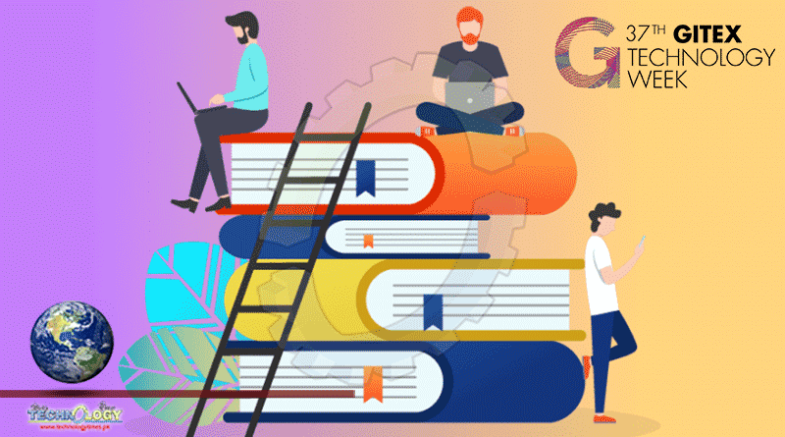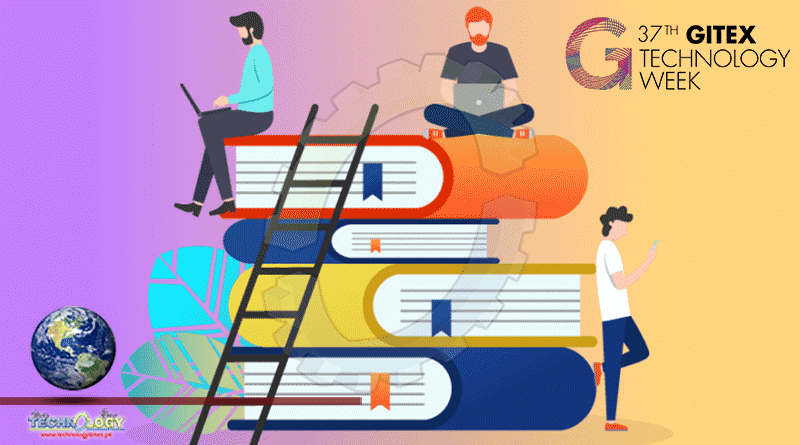Transformative Technology, GITEX Global, Held From October 17-21, 2021, Will Spotlight The Latest Advances In The Education Sector.

Building on the advances of the past two years, authorities can build a 21st-century education system that combines traditional teaching with the latest technology Education technology, or EdTech, was instrumental in enabling hundreds of millions of students globally to continue their education during the Covid-19 pandemic. In the post-pandemic era, countries in the region can accelerate the transformation to knowledge-based economies by innovating the education sector.
In line with its role as a platform for transformative technology, GITEX Global, held from October 17-21, 2021, will spotlight the latest advances in the education sector. Education is one of the 11 tracks to be highlighted at this year’s event, where participants can hear from pioneers spearheading and securing the future of this sector. Leading figures in the global education technology are among speakers in the Education Track, including Dr Bernard Ghanem from the King Abdulla University of Science and Technology (KAUST), Elena Sinel, founder and CEO, Teens in AI, Christopher Abraham from the SP Jain Global School of Management, among others.
Event-goers also have the chance to explore other technologies that will have a massive impact on the education sector, such as AI, cybersecurity, 5G, cloud, big data, and more. According to research firm Markets&Markets the global EdTech and smart classroom market size is expected to grow from $85.8bn in 2020 to $181.3bn by 2025, at a CAGR of 16.1 per cent during the forecast period. The researchers attribute this growth to “increasing penetration of mobile devices and easy availability of internet users, and growing demand for EdTech solutions, impact of Covid-19 pandemic and growing online teaching-learning models to keep running the education system.”
21st-century education
Although restrictions have eased in many parts of the world, the progress made in digitising education will remain relevant. Authorities in many parts of the world can build on this digital foundation to create a genuinely 21st-century education system that blends traditional teaching models with the technology tools that have emerged in the last two years. The Middle East is one of the leading EdTech hotspots. One of the pioneers in the region is Alef Education, whose meteoric growth since its launch in 2016 is a testament to the potential for education evolution in the region. Starting with just one school, Alef now provides solutions for 418 schools, 121,000 students and more than 10,000 teachers. The company uses the latest technologies such as AI to advance education and recently announced a partnership with the Ministry of Education in the UAE to roll out the Alef Platform to more than 200 schools across the Northern Emirates.
The region’s educators have also emerged as true EdTech pioneers. When Microsoft has announced its Microsoft Innovative Educator (MIE) Experts for 2020, 2,013 educators in the list were from the UAE, a more than six-fold growth. The UAE made up the lion’s share of the MIE Expert programme, which seeks to improve student learning through technology, with one in 10 out of 20,000 featured worldwide. “With the challenges that Covid-19 has presented for all our communities, educators have become more vital than ever. At a time of great reimagining and change, they help to reshape our world by imparting knowledge and expertise,” said Ahmed Ameen Ashour, education director, Microsoft UAE.
Personalised learning
EdTech enables educators to deliver personalised learning so that all students learn at their own pace, anytime and anywhere. The technology also allows students to comprehend difficult lessons better by using effective learning techniques such as engaging videos, activities and games. Teachers can then use data in the decision making, making education delivery more effective and impactful. See all these and more at GITEX Global from 17-21 October 2021 at the Dubai World Trade Centre.
This news was originally published at Gulf Business
